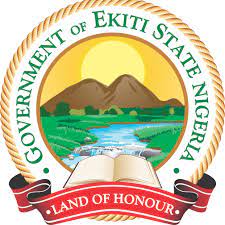Ekiti State Governor Mr Biodun Oyebanji, has disclosed the plan of his administration to promote farming activities as well as encourage more farmers’ interests in commercial agriculture, with attendant financial and economic opportunities.
The Governor said the widespread food shortage experienced across the country and globally in the outgoing year will be tackled by his government through the provision of tractors and chemicals and creating an enabling environment for more investors in the state.
Oyebanji was represented on Wednesday by the Commissioner for Finance, Mr Akin Oyebode, during a two-day inclusive stakeholder meeting for the establishment, adoption and implementation of Framework for Responsible and Inclusive Land Intensive Agriculture (FRILIA)
The programme tagged: “Inclusive Dialogue for Sustainable Land Governance for Agricultural Investment” was organised by Ekiti State Ministry of Land and Urban Development, Nigeria Governor’s Forum (NGF) and the World Bank.
Governor Oyebanji urged the people of the state especially the community leaders to “support the zeal of the government in repositioning the agricultural sector and improve on the food security agenda of the government.”
Speaking further at the programme Governor Oyebanji said his government had in the last few days, injected over N300 million into the economy of the state, which he said was in line with the shared prosperity and wealth creation agenda.
Earlier in his opening remarks, the Special Adviser to the Governor on Land and Survey, Professor James Olalẹyẹ, lauded Governor Oyebanji” for signing the Executive Order for the establishment, adoption and implementation of FRILIA in Ekiti State.”
He described FRILIA as a World Bank Project executed across Nigeria States and the Federal Capital Territory in collaboration with the NGF Secretariat apparently to ensure land acquisition and resentment for large-scale agribusiness investments undertaken in line with established
international standard.
Professor Olaleye used the occasion to illustrate the benefit of FRILIA to include, “creating an enabling environment for business, economic growth of the state through the creation of jobs opportunities and production of goods and services among other benefits.”
Other benefits mentioned by him are bridging the gap between investors and communities and putting in place procedures for investments as well as management of environmental and social sustainability.
Bringing together all relevant stakeholders, including local farmers, community leaders, civil society organizations, government officials and potential investors and partners to discuss the project’s goals and benefits.
Promote transparency by openly sharing information about the FRILIA project, including its implementation plan and expected outcomes among other benefits.
He further solicited the support of the stakeholders mm in making the purpose of organizing the stakeholders a reality.
Emphasising the need for inclusive stakeholder engagement and town hall introductory meeting, saying that the move will lay a strong foundation for the successful implementation of the FRILIA project in the state and ensure that it benefits all stakeholders and contributes to sustainable development.
The two-day event which featured the delivery of goodwill messages, keynote addresses, lectures and group photographs, was attended by civil servants from various ministries, departments and agencies.















